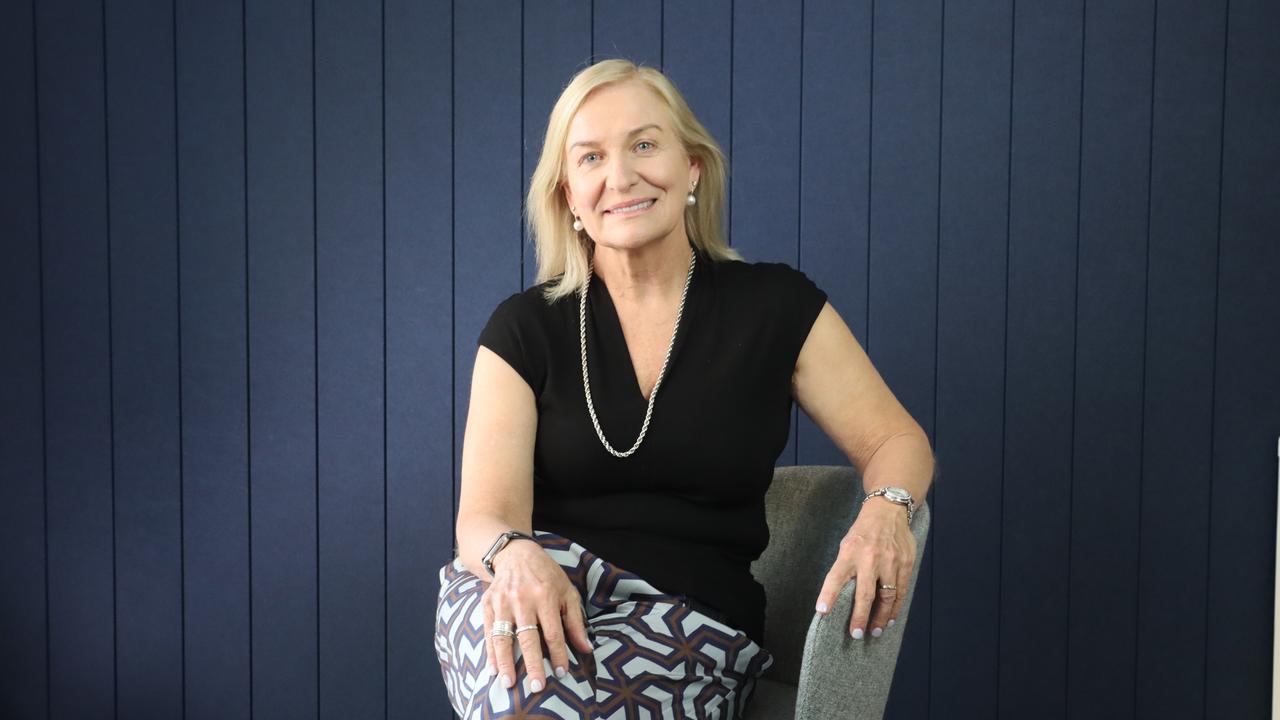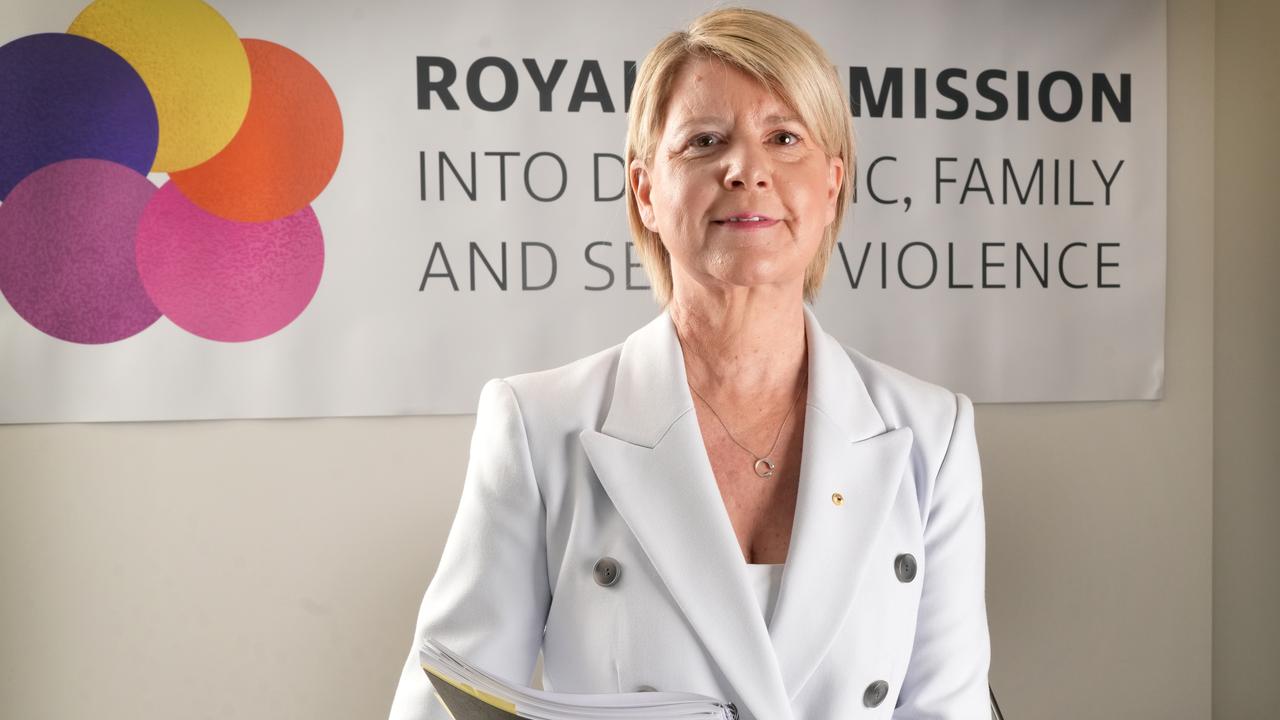Tougher new laws for perpetrators offer more safety for DV victims
Landmark legal reforms are being rolled out to provide extra support and peace of mind for victims of domestic violence.

Help is at hand for South Australians caught in the trauma of domestic violence.
Landmark legal reforms are being rolled out to provide extra support and peace of mind for victims through restricting the movements of defendants who breach domestic violence-related intervention orders.
And the introduction of tougher new laws to criminalise coercive control – hidden abuse that can leave victims psychologically traumatised – is another potentially life-saving step.
Coercive control legislation, introduced to state parliament earlier this year, outlines penalties for non-physical forms of violence which have a “controlling impact” and are likely to cause physical or mental harm to a spouse, de facto partner, fiance or ex-partner.
Legal Services Commission South Australia chief executive officer Annmarie Lumsden says statistics show more than 90 per cent of domestic violence related homicides feature controlling behaviour by the perpetrator.
“More and more people are realising that this sort of behaviour can be a precursor to much more serious domestic violence, including homicide,” she says.
As the largest legal service provider in the state, Legal Services is advising on an ever-increasing number of domestic violence related issues.
“We deliver more than 160,000 legal assistance services each year,” Lumsden says. “And about 15 per cent where we record client details are related to domestic violence.
“Last year we provided 6000 legal assistance services to people who were experiencing or at risk of domestic and family violence. These services include legal representation, a duty lawyer service or an advice appointment. They exclude those services such as the free helpline, where we don’t take the client details.
“And in Commonwealth family law matters, 60 per cent of clients self-identify as experiencing domestic and family violence – and our lawyers have identified that that figure should be closer to 80 per cent.”
Lumsden says coercive control is an “insidious” pattern of behaviour – making the new legislation a welcome step.
“Domestic violence is generally seen as a one-off offence but coercive control is about a pattern of behaviour where a perpetrator tries to dominate their victim through fear, manipulation and isolation,” she says.
Even without the creation of a new offence, intervention orders can still be sought by people who are subject to some of those controlling behaviours.
“In South Australia a criminal charge doesn't need to be laid by police for a magistrate to grant an intervention order,” Lumsden says. “An intervention order may be granted when it can be shown that the person is at risk of harm.”
Legal Services offers a wealth of free legal information and services, and can also obtain intervention orders for individuals if required. “Often people don’t even know they can seek assistance for domestic violence; often they don’t know where to go,” Lumsden says. “Coercive control is this insidious aspect of domestic violence ... people often don’t identify it as a legal problem that there is a solution for.
“We have a very broad remit in relation to the provision of legal services, including for both victims and perpetrators of domestic violence. Anyone in SA can call our free legal helpline and we can provide general legal information and advice and refer clients to our specialised services if they require that.”
Programs include the Women’s Domestic Violence Court Assistance Service, a court-based service providing expert and specialist information and legal advice and legal representation to women navigating the court system with complex domestic and family violence matters. There are also Health Justice Partnerships with the Women’s and Children’s and Lyell McEwin hospitals, while a Domestic Violence Unit provides wraparound legal and social support services for women who have experienced domestic violence in northern Adelaide, as well as in Port Augusta, Port Pirie and Whyalla.
Legal Services’ free Legal Helpline – available to anyone in SA – is the gateway for people wanting access to legal advice and services. Contact: 1300 366 424.
First step on the road to recovery

In South Australia, domestic and family violence remains a confronting reality, with 12,500 offences reported in the past year alone.
For many women, the journey out of abuse is fraught with fear, uncertainty and overwhelming barriers. The Zahra Foundation Australia is stepping in to change that narrative.
Founded in honour of Zahra Abrahimzadeh, whose life was tragically cut short by domestic violence, the foundation provides critical support to women impacted by abuse. Offering free programs, education, financial counselling and grants, Zahra Foundation empowers women to rebuild their lives free from poverty and violence.
“Leaving an abusive situation is just the first step,” chief executive Kelly-ann Tansley explains.
“The journey to recovery involves healing, gaining financial independence and rebuilding self-confidence. That’s where we come in – offering practical support and programs like Pathways to Empowerment to help women take back control of their lives.”
Designed to promote wellbeing and financial independence, the program offers women the tools and knowledge to create a sustainable future. “We understand that financial abuse is often a silent weapon in domestic violence,” Tansley adds. “That’s why financial counselling is a cornerstone of what we do. It’s about giving women the skills to manage their money, understand their rights and break free from cycles of dependency.”
The challenges of domestic and family violence are even more pronounced in regional areas, where women face a 26 per cent increased likelihood of experiencing abuse and where support services are often limited. Recognising this gap, Zahra Foundation has extended its reach to Port Lincoln and Whyalla in partnership with Yarrdi Services and Centacare.
“These partnerships are critical for addressing the unique challenges faced by women in regional and rural South Australia,” Tansley explains. “But the demand is far greater than our current capacity. We rely on the generous support of the South Australian community to sustain and expand these programs.”
With the South Australian Premier announcing renewed focus on tackling domestic and family violence, Tansley is optimistic about what these changes mean for survivors, emphasising the importance of collaborative action between government, community organisations and the private sector.
“We welcome reforms that prioritise victim-survivors and address financial abuse as a key issue. Every step forward is a step towards a South Australia where women and children can feel safe and empowered.”
A new beginning
When Sarah* first walked through the doors of the Zahra Foundation, she was at her lowest point. “I remember sitting there, feeling so small,” she says. “I didn’t know what to expect but I knew I had to try something – for myself and for my children.”
The Pathways to Empowerment program became a pivotal moment in her recovery. Over weeks of workshops and one-on-one support, she began to rebuild her sense of self-worth.
“The program wasn’t just about practical skills – it was about rediscovering who I was. The facilitators treated me like a person, not a victim. They helped me see that I wasn’t defined by what had happened to me.”
One of the most transformative aspects of the program was the financial counselling. “I’d never been in control of my own finances,” she explains. “The counsellors helped me understand how to budget, deal with debts and set goals for the future. For the first time in years, I felt like I had power over my own life.”
With the foundation’s encouragement, Sarah enrolled in a part-time vocational course. “They connected me with local resources and helped me navigate the system. It was overwhelming at first, but knowing I had their support made all the difference.”
Today, she is studying part-time and working towards a career in community services, inspired by her own experiences. “I want to help other women who are where I was. I want to show them that change is possible.”
For Sarah, the recent domestic violence reforms announced in South Australia are deeply personal. “When you’re in the middle of it, it’s hard to imagine anyone cares about what’s happening to you,” she says. “But these reforms send a powerful message: you are not invisible. There are systems being built to support you, and people who want to help.”
* name changed
Hearing the voices of lived experience
In late 2023, the State Government committed to holding a Royal Commission into Domestic, Family Violence and Sexual Violence in South Australia. The commission commenced on July 1, 2024, with Natasha Stott Despoja AO appointed in the role of royal commissioner.
The royal commission is examining prevention, early intervention, response, recovery, healing and co-ordination. The inquiry is listening to advice, suggestions or ideas to ensure the domestic violence system works for victim-survivors.
“This is forward-facing inquiry, focused on achieving outcomes that will help prevent, address and hopefully eliminate domestic, family and sexual violence in our state,” Stott Despoja says. “I want to investigate what is not working and how we can transform the system ... to create a safer community.”

Topics covered in the public hearings are based on emerging themes from the Commission’s community consultations and four-month listening phase, submissions, and data and documentation requests, in addition to advice from the Royal Commission’s Advisory Group and its Aboriginal Partnership Committee. The first two hearings covered housing and homelessness, and sexual violence.
The Commission’s anonymous online survey, Share With Us, is also available until December 10, with responses feeding into the final report.
“I encourage anyone with interaction with the domestic, family and sexual violence sector to take the survey,” Stott Despoja says. Last week the commission released its Journey so Far report, outlining work completed to date and highlighting the key emerging themes and gaps.
Originally published as Tougher new laws for perpetrators offer more safety for DV victims



